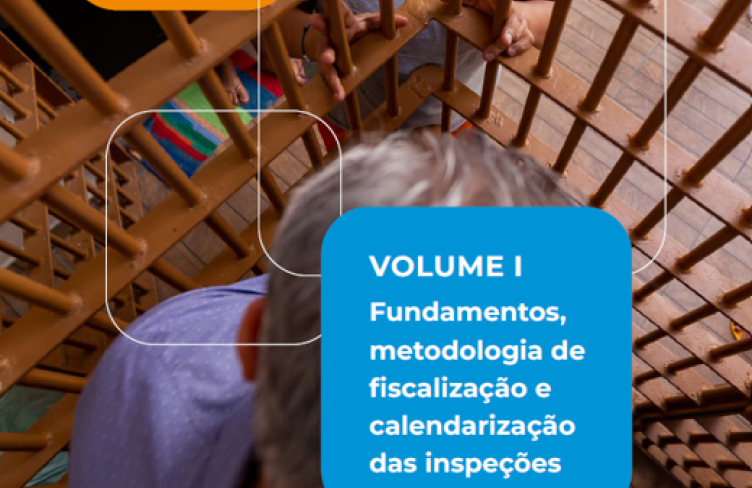
In a recent APT publication, I reported on an expert meeting we held last year. The publication, Beware the Gift of Poison Fruit - Sharing information with States that torture, examined potential individual and State responsibility for torture committed overseas. At the meeting, the experts considered the elements necessary for finding a person responsible for helping in torture committed by others. As the Appeals Chamber of the International Criminal Tribunal for the former Yugoslavia (ICTY) has now made a relevant ruling on the issue of complicity, I would like to revisit the issue and clarify exactly what the recent ruling by the court says.
First, let me tell you why it matters. Let’s assume that a suspect is tortured in State A. Perhaps it was thought likely that the suspect had information that might be useful, so Mr X from another State informally invites friends from State A to ‘press’ the suspect, and share any information they obtain. Mr X doesn’t ask for the suspect to be tortured, but then again, he doesn’t say that only lawful techniques should be used either.
You might recognise that facts similar to these have been heard regularly over the last ten years as States, through their intelligence and security agencies, rushed to respond to the threats of global terrorism.
The debate over ‘specific direction’
As reported in Beware the Gift of Poison Fruit, aiding and abetting liability (or complicity) in international criminal law required that the alleged perpetrator must have a high degree of culpability. Acts of State agents that were too distant from the act of torture, or instructions that did not clearly direct that torture should be used, would be unlikely to constitute complicity. It is a complicated issue, and it’s worth just restating some of the key points from this analysis here.
In the case of Perišić, the ICTY Appeals Chamber considered that specific direction was an essential element for aiding and abetting liability. It ruled that to be complicit in the crimes committed by others, any assistance must be specifically directed to help the commission of the crime.
Commentators have been critical of the ruling, arguing that it made the prosecution for aiding and abetting international crimes almost impossible. Following the Perišić ruling, even in circumstances where a person clearly provides great assistance in the commission of an international crime, with blatant knowledge of the crimes being committed, they should be acquitted, unless there is proof that what they did was clearly aimed at encouraging the crime to be committed. As leaders rarely give explicit directions to commit abuses amounting to international crimes, it was understood that the standard would invariably be impossible to satisfy.
In our example above, Mr X provides assistance by way of encouragement, which is a substantial contribution to the resulting torture. Perhaps he has full knowledge that torture is routinely committed by State A. Following Perišić, our problem would likely be one of proof – can it be shown beyond reasonable doubt that Mr X gave specific directions that torture be committed? Without something equivalent to a letter directing that torture should be used, it would seem almost impossible to prove.
Rejection of the Perišić case
Fortunately, since the Perišić ruling, the Special Court for Sierra Leone, and now the ICTY in the recent Appeals Chamber Judgement of Šainović et al., have flatly rejected the additional requirement. In relation to the Taylor case in Sierra Leone, one commentator wrote that the decision stands as a “victory for justice everywhere and a warning to those who think they can, like the wizard of Oz, manipulate atrocities from afar and not face consequences.”
In Šainović, the Appeals Chamber of the ICTY unequivocally rejected Perišić, coming to ‘the compelling conclusion that “specific direction” is not an element of aiding and abetting liability under customary international law’. The Chamber recalled the extensive examination of State practice by the Court in Furundžija, and concluded that under customary international law, aiding and abetting requires the following elements: First, a contribution by way of assistance, encouragement or support; second, a substantial effect on the perpetration of the crime; and third, knowledge that their help assists in the commission of the crime.
The UN Convention against Torture does not define complicity. States parties therefore look to other jurisdictions for inspiration. The customary standard restated in the Šainović Appeal Judgement is therefore a welcome source of law for States to apply in the prosecution of persons accused of helping with torture, among other international crimes.
So coming back to our example above, the relevance is clear. If there is good reason to believe Mr X knew that his friends in State A were likely to use torture when he invited them to ‘press’ our suspect, Mr X could be guilty of helping to torture under international law, notwithstanding that he gave no specific direction for torture to be used.
The law, it seems, is reducing the scope for States to enjoy the poisoned fruits of torture without risking criminal liability.

